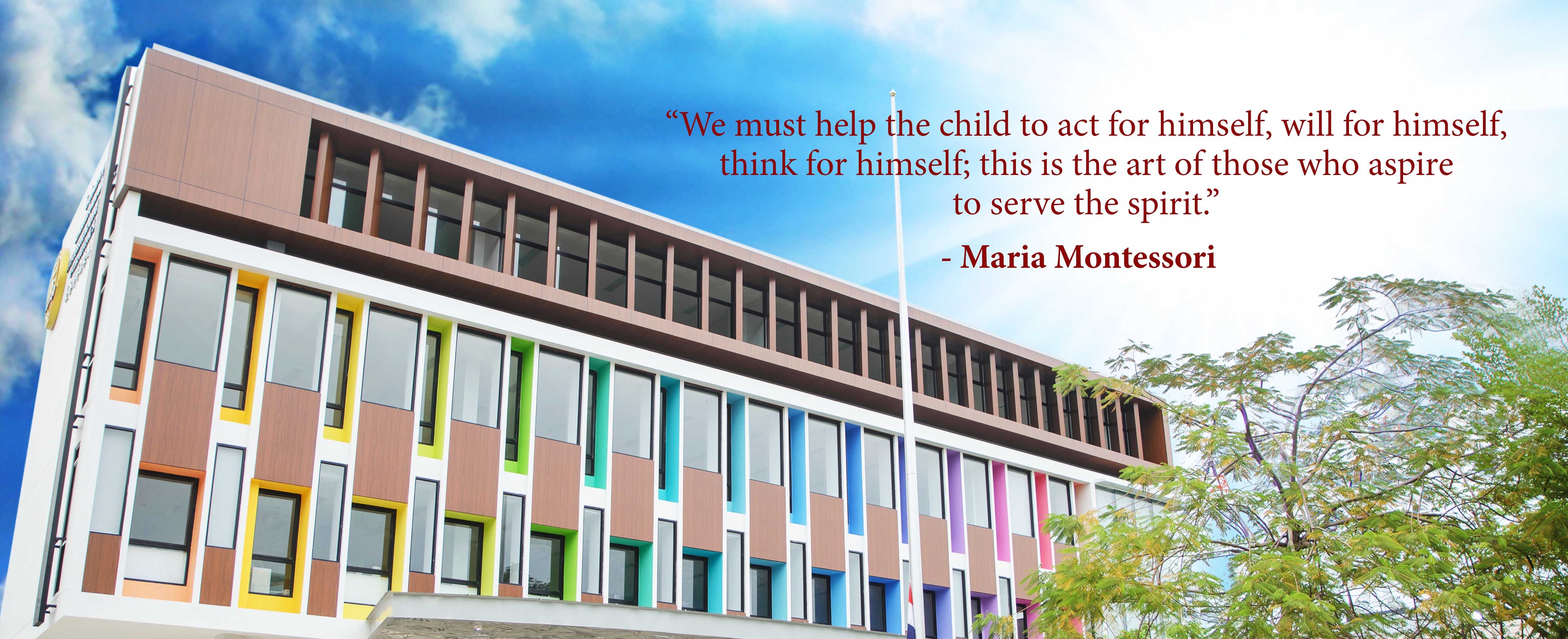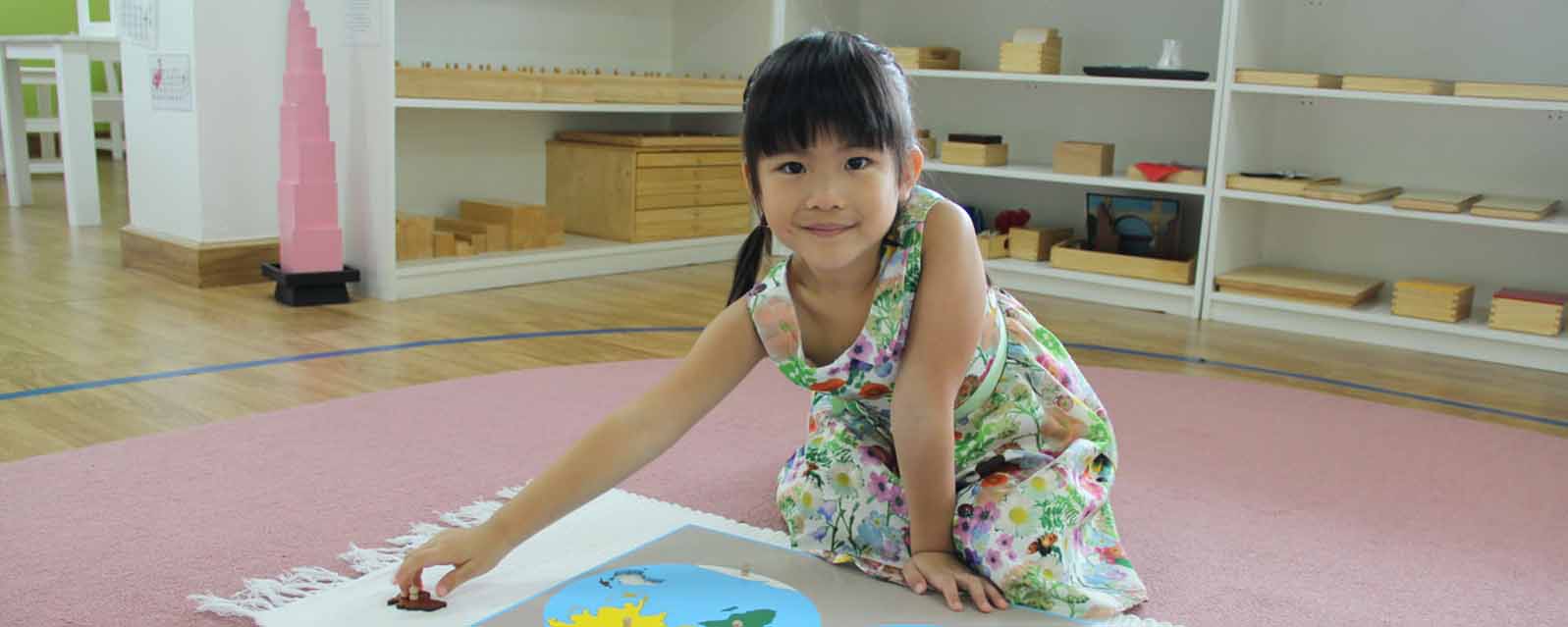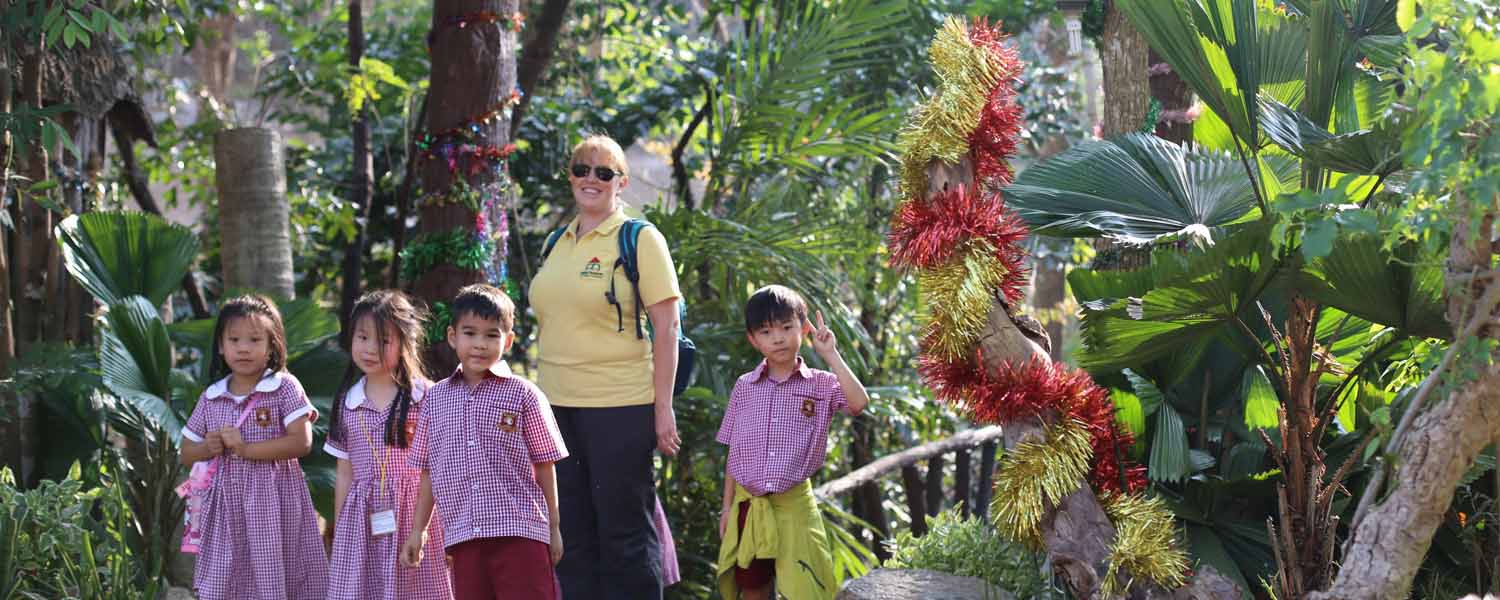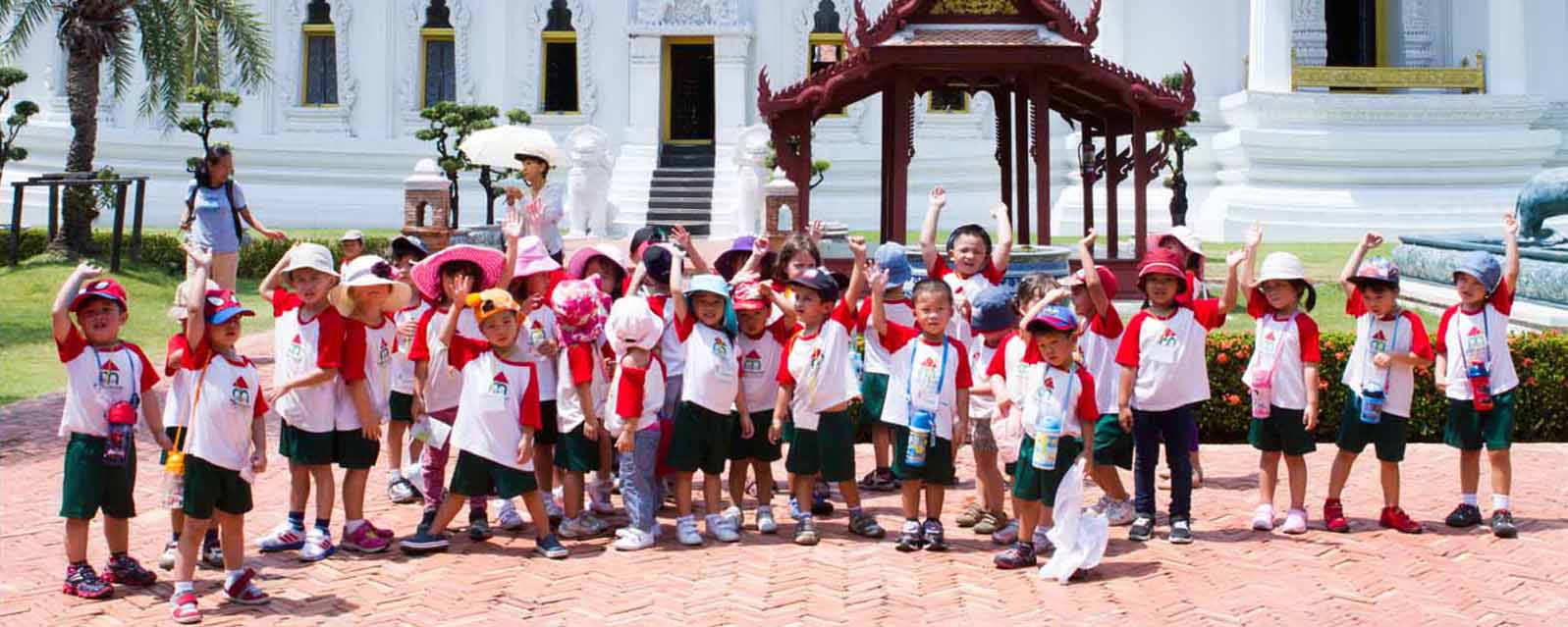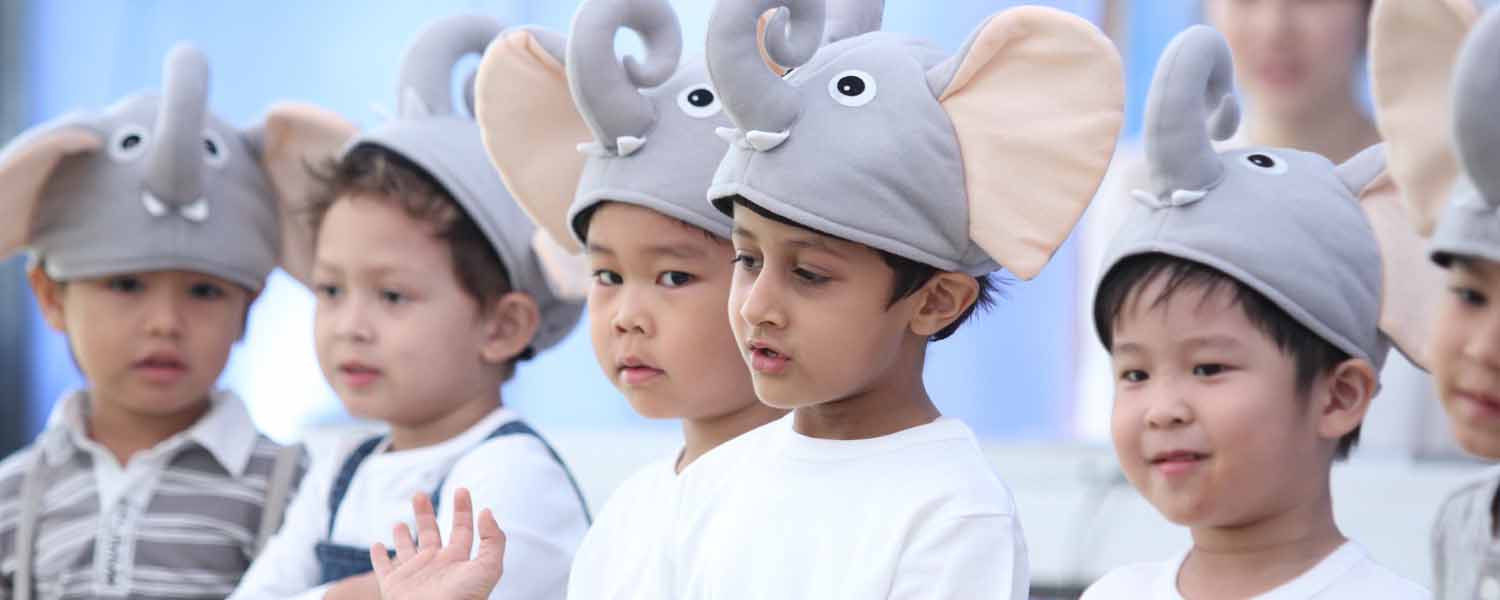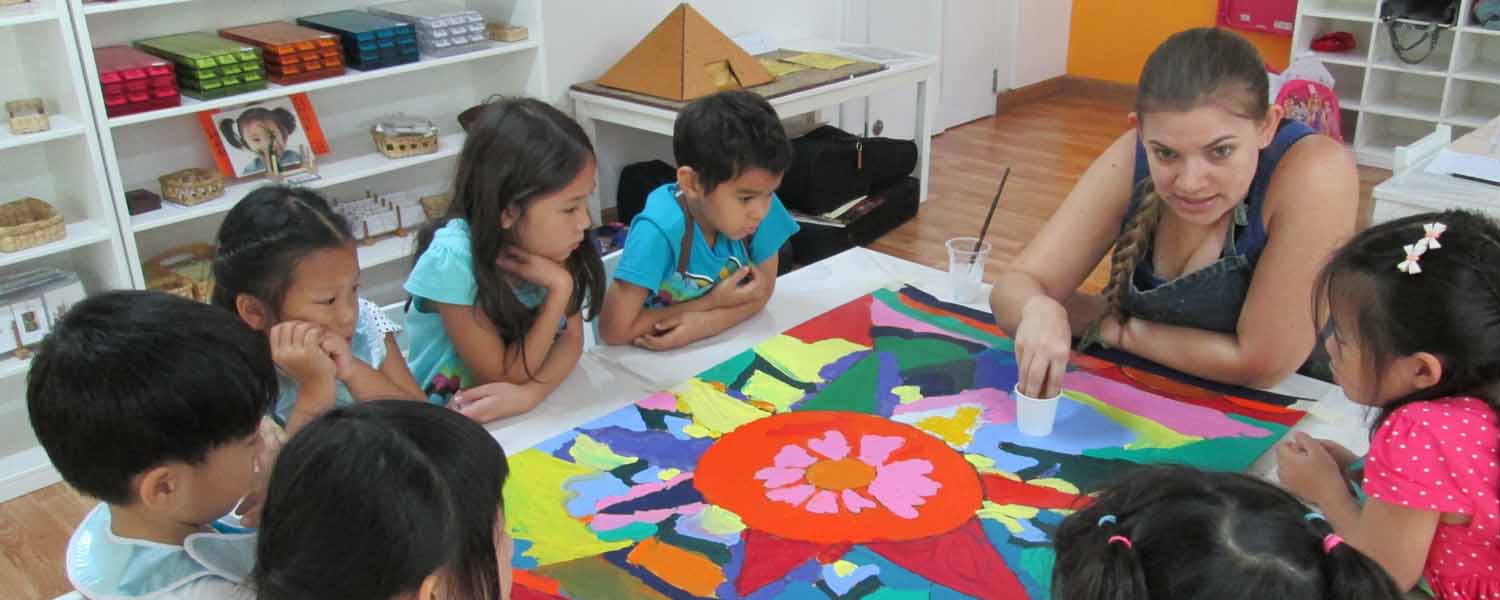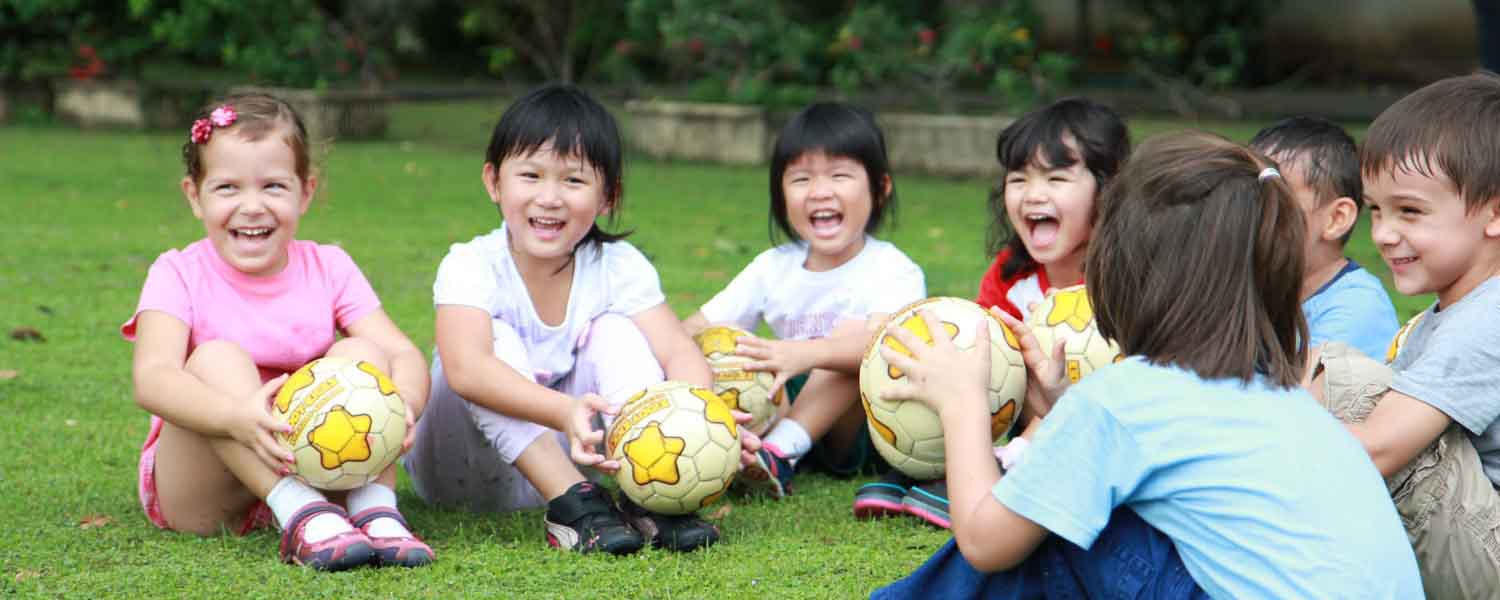Q&A
How do you choose a Montessori school?
Montessori is not a registered trademark. Any school can claim to offer a Montessori program, however, the extent that various schools practice Montessori may differ widely. Parents should visit the school, inspect the facilities and equipment, inquire whether teachers are trained, review the class schedule to ensure that there is a 2.5-3 hour uninterrupted work cycle each day for the Casa and Elementary programs. Affiliation with international Montessori organizations such as AMS or AMI may also indicate the quality of the school’s program.
How do teachers teach in a Montessori classroom?
First teachers get to know each child as an individual. She assesses his strength, weaknesses and developmental needs. She then puts him in touch with the appropriate materials and lessons to further his development. A lot of lessons are given on an individual basis. Some are also offered as group lessons.
The three teachers circulate the classroom and offer lessons or assistance as appropriate. The teachers are guided by her observation of the child and her lesson plan.
Will my child be competitive coming out of the Montessori program?
The Montessori curriculum is both fun and rigorous. Children learn real concepts from attractive and three-dimensional materials which allow them to learn more deeply. They are also exposed to a wide array of knowledge and are encouraged to explore and follow their curiosity.
Compared with the US National Core curriculum, the Montessori curriculum is at least 1-2 years advanced for all subject areas at all levels. Children who graduate from the three-year Casa program (comparable to the Kindergarten level) are able to read simple readers, compose simple sentences in English, read books with 150-300 characters in Chinese, compose sentences in Chinese, read and write simple words in Thai, read simple Thai phrases. They know the decimal system (in the thousands) and have been exposed to mathematical operations with numbers that are in the thousands. They know the continents of the world and many countries, they can classify animals by types and can name the parts of animals and plants.
Will my child be able to read and write?
A child who has gone through the three-year Casa program is expected to be able to read and write. Students learn literacy through a phonetic approach. Montessori students often start to compose words with the Moveable Alphabet before they read. This can start as early as 3.5-4 years old. At the end of the Casa program, students can read phonetically, can recognize a lot of sight words and several phonograms. They get a lot of experience reading different materials including simple readers, children’s classics, classified cards (picture cards with names), labels of materials or maps, definition booklets in the classroom.
In the Elementary program, the student goes through a systematic process of learning spelling with colored Moveable Alphabets. They learn grammar with the extensive Montessori grammar materials. They get a lot of practice writing and developing comprehension skills and get exposure to a variety of literature.
Will my child experience too much freedom in a Montessori program? Will this be detrimental to his discipline?
Freedom is necessary for growth and for self-expression. Freedom in a Montessori classroom is not without limits. There are clear rules that the children are expected to abide by. These rules ensure the safety of the learning environment and also safeguard children’s work (freedom to work without interference). Dr. Montessori observed that children are much happier working in an environment where they can exercise free choice. She also observed that because they are happy they want to contribute towards maintaining this environment and thus they learn to become responsible members of their community. They learn and exhibit self-discipline.
Is there too much emphasis on individual work in Montessori?
Children experience a mix of individual and group work. There isn’t a focus just on individual work. Individual work is necessary for a child to solidify a new concept, he can only do so through practice, concentration, contemplation and reflection which happens during individual work. However, there are group lessons that are suitable for several students at a time, these are often games. Children enjoy learning new concepts through games. They relish in the social element, the friendship. They learn through dialoguing and exchanging views with their friends, of working together to figure out new ways to work with the same materials, etc.
In the Elementary years, group work becomes more prominent. This is in response to the children’s greater natural inclination for social activity at this age.
How does the trilingual program work? What is the percentage allocation to each language?
The language program at MABIS is an emersion program. Three teachers are dedicated to each classroom: an English, Thai and Mandarin teacher. The teachers prepare their lesson plans in advance. They flow in the classroom and work with the children in a natural way, not intruding, not disturbing, but rather augmenting their work by offering the appropriate language to accompany the lessons. In the Toddler and Casa programs, the proportion of time each child spends learning each language is about equal.
In the Elementary program, English is the leading language in which all subjects are taught. For Mandarin and Thai, children get language lessons and cultural lessons (science, geography, history) that complement the English lessons.
Are there homework or tests in Montessori?
There are no homework or tests at the Toddler and Casa levels. Teachers assess students through observation and through interacting with them in class. Teachers do test for mastery of concept, but this is not necessary in a paper and pencil format. Montessori uses the three period lesson. In the first period, the child is introduced to a concept. In the second period, he is practicing to learn the concept. The third period is the test to see whether he has acquired and retained the concept. The third period testing is done discretely. The child does not feel he is pressured. He reveals what he knows. If he demonstrates mastery, he will proceed to the next lesson. If he does not, the teacher may offer him other exercises for more practice.
At the Elementary level, students will have three types of homework: work of the home (assisting with household chores), language homework (reading or writing in the three languages), and projects. Tests are given as third period tests. Students use the term test. External norm-referenced testing will be conducted from Grades 3 onwards.
After Montessori will my child be able to adjust to mainstream school?
Students who go through Montessori programs are socially adept and are cognitively prepared for challenges. They tend to transition into mainstream school without any issues because they have learned through Grace and Courtesy lessons and through living in a community of learners how to adjust socially. They are also well equipped with self-help skills and are also strong independent learners.
Will my child get accepted at another school after the Montessori Elementary program?
MABIS students have gone to leading international schools such as Bangkok Patana International School, Concordian International School and Singapore International School.
MABIS management team has established relationships with several leading international schools in Bangkok to ensure awareness of the quality of the Montessori program as well as to secure a smooth transition process. Several schools have indicated that they have no wait list past Grade 1. They look for good academic standing and require placement testing. However, some schools do have a limited quota for Thai nationals.




